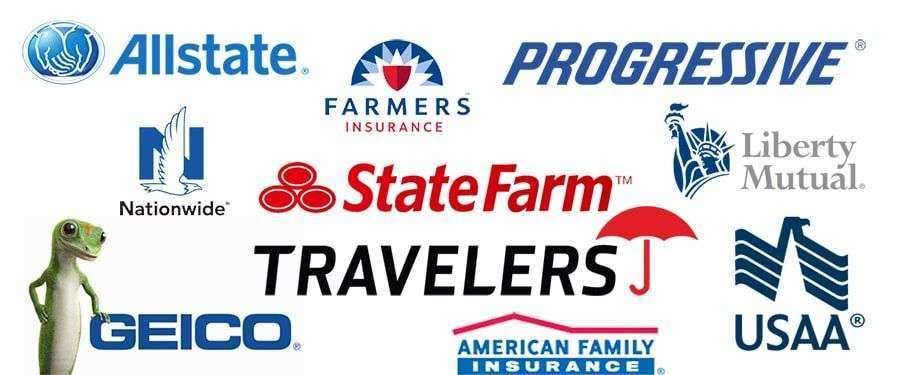Your Brief Guide to Auto Insurance
Auto insurance is a double-edged sword that will protect you and your car while invariably keeping other drivers in check on the road. It assures you and gives you financial security from any accidents, theft, or other unexpected thing that happens to your vehicle—committed to helping you preserve your savings and be level-headed about what comes out of auto insurance. Insurance is a basic need in our lives in today’s modern age.
Why is Auto Insurance Important?
Auto insurance is crucial for several reasons:
- Legal Obligation: Most places require drivers to have at least basic auto insurance.
- Financial Protection: It covers repair costs, medical bills, and legal fees associated with accidents.
- Security and Peace of Mind: Knowing you’re insured allows you to drive without constant worry.
Common Types of Auto Insurance
What is evidently true, however, is that auto insurance does not work just like an absolute set of guidelines. Understand Types of Coverages Here are the main categories:
What Does car Insurance Liability Cover?
Liability Coverage: This is probably the most widely held coverage as it’s what is legally required of you in almost every state and covers other people and property that your vehicle may encounter when an accident happens.
Collision Coverage
On the other hand, collision coverage pays for your car to be fixed when you cause an accident (or if there is a single-car crash) and vehicle repair takes place.
Comprehensive Coverage
Comprehensive: Comprehensive covers you against non-collision incidents (e.g., theft, vandalism or natural disaster) and therefore includes more insurance protection.
Personal Injury Protection (PIP)
Yes, subsidized for ALL at-fault and no fault are PIP all the medicine fees of you aside your bread winner it furthermore goes towards vehicle protection.
Uninsured/Underinsured Motorist Coverage
This coverage also protects you if you are in an accident with another driver who does not have insurance-covered or the amount that he has is insufficient.
Choosing the Right Auto Insurance Provider

Selecting an insurance provider is a crucial step. Consider the following factors when making your choice:
- Reputation: Research customer reviews and industry ratings.
- Affordability: Compare quotes from various companies to find the best rates.
- Coverage Options: Make sure the provider offers policies that fit your specific needs.
- Customer Service: A provider with excellent customer service can make your insurance experience much smoother.
Factors Influencing Auto Insurance Premiums
Several factors affect how much you pay for auto insurance:
- Age and Gender: Younger and male drivers often face higher premiums due to perceived risk.
- Driving History: A clean driving record with no accidents or violations can lower your rates.
- Location: Urban areas typically have higher premiums due to increased traffic and risk of theft.
- Vehicle Type: High-end and performance cars are more expensive to insure.
- Credit Score: In some areas, your credit score can impact your insurance premium.
Cheapest Auto Insurance
You can get cheapest auto insurance for your vehicles with a few strategic tips:
- Shop Around: Get quotes from several providers to find the best deal.
- Bundle Policies: Combining auto insurance with other policies (like home insurance) can lead to discounts.
- Increase Deductibles: A higher deductible can lower your premium, but be prepared to pay more out-of-pocket in case of a claim.
- Take Advantage of Discounts: Ask about discounts for safe driving, being a good student, or installing safety features in your car.
Debunking Common Auto Insurance Myths
Misconceptions about auto insurance can lead to poor decisions. Here are some myths clarified:
- Red Cars Cost More to Insure: Insurance companies don’t determine premiums based on car color.
- Older Cars Don’t Need Comprehensive Insurance: Even older vehicles can benefit from comprehensive coverage.
- Personal Insurance Covers Business Use: Using your car for work may require a commercial policy, not personal insurance.
- Credit Doesn’t Affect Insurance Rates: In some places, your credit score can influence your premium.
Common FAQS
Q1: Do I need every type of coverage?
A1: Not necessarily. It varies based on how much you drive, the kind of car it is and your budget. Just assess your individual circumstance and decide.
Q2: Can I change insurance providers at any time?
A2: You can, but be sure there are no gaps in your coverage!
Q3: How do I file a claim?
A3: Get in touch with your insurance provider ASAP. Give facts: include any related documents, the picture and police reports if possible.
A4: Am I insured to drive the car?
A4: This is touchy — it depends on your policy. Rental car coverage is available on many full-coverage policies, but verify with your provider.
Q5: Will I save money because rates are lower for people who drive less?
A5: Yes, many insurers offer low-mileage discounts. Let your provider know if you drive significantly less than average.
Conclusion
Having auto insurance is a fundamental part of owning an automobile. The policy not only satisfies the laws but also provides financial protection and peace of mind. One road to optimal insurance protection is knowledge — knowing what different types of coverage there are, how to choose a provider cautiously and where you might be able to earn some savings.
If you liked our article, please subscribe to our YouTube channel. You can also read our article on Amazon online earning in USA.

